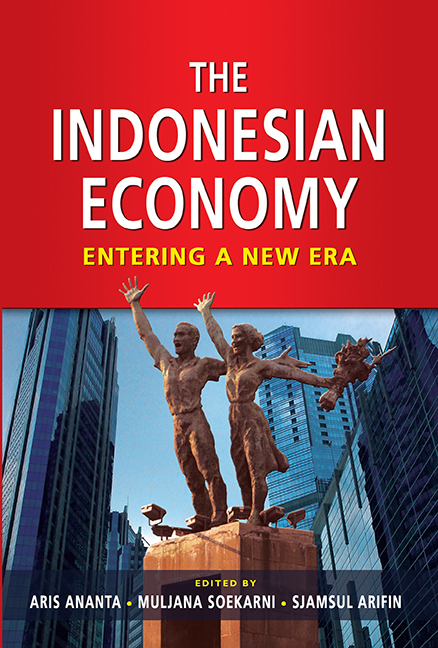Book contents
- Frontmatter
- Contents
- List of Tables
- List of Figures
- Message from the Deputy Governor of Bank Indonesia
- Message from the Director of the Institute of Southeast Asian Studies
- Foreword
- Preface
- Contributors
- PART I INTRODUCTION
- PART II MONETARY AND FISCAL POLICIES
- PART III DOMESTIC ECONOMY
- PART IV SEARCH FOR NEW PARADIGMS
- Index
Preface
Published online by Cambridge University Press: 21 October 2015
- Frontmatter
- Contents
- List of Tables
- List of Figures
- Message from the Deputy Governor of Bank Indonesia
- Message from the Director of the Institute of Southeast Asian Studies
- Foreword
- Preface
- Contributors
- PART I INTRODUCTION
- PART II MONETARY AND FISCAL POLICIES
- PART III DOMESTIC ECONOMY
- PART IV SEARCH FOR NEW PARADIGMS
- Index
Summary
Indonesia and the world have changed rapidly, particularly in the first decade of the twenty-first century. The Asian financial crisis in 1997–98 has also dramatically changed the course of Indonesian development, switching Indonesia from an authoritarian era to a democratizing one. Economic issues can no longer be discussed in a social and political vacuum. This book is an attempt to see Indonesian economy in the changing era, to examine Indonesian economy beyond the conventional macroeconomic variables. It is also expected to trigger a new debate in the creation of a new development paradigm for Indonesia and the world.
This book is a result of a collaboration between the Institute of Southeast Asian Studies (ISEAS) in Singapore and the Centre for Central Banking Studies, Bank Indonesia (BI) in Indonesia. The draft has been discussed in three stages. In each stage it has its own discussants. The first draft was discussed in a closed door conference in ISEAS, Singapore, on 24 June 2009, followed by a public seminar on “Indonesia's Response to the Global Financial Crisis” with three speakers: Made Sukada (BI), Halim Alamsyah (BI), and Marleen Dieleman (National University of Singapore) on 25 June 2009. We would like to thank the following discussants in the conference: Evi Nurvidya Arifin (ISEAS), Richard Barichello (University of British Columbia), Aekapol Chongvilaivan (ISEAS), Rizal A. Djaafara (BI), Melanie S. Milo (ASEAN Secretariat, formerly with ISEAS), and Yohanes Eko Riyanto (Nanyang Technological University).
The second draft was examined in an internal meeting with the authors and staff of the Centre for Central Banking Studies (PPSK), BI, and some invited discussants in Jakarta on 3 and 4 September 2009. We owed the comments and questions on the drafts from Mas Achmad Daniri (National Committee on Governance), Gunardi Endro (Bakrie University), Djoni Hartono (University of Indonesia), Maddaremmeng A. Panennungi (University of Indonesia), Agus Pramusinto (Gadjah Mada University), Asep Suryahadi (SMERU), and Bob Widyahartono (Trisakti University).
The third draft was presented in an open seminar by the PPSK in Jakarta on 17–18 February 2010.
- Type
- Chapter
- Information
- The Indonesian EconomyEntering a New Era, pp. xxiii - xxivPublisher: ISEAS–Yusof Ishak InstitutePrint publication year: 2011



